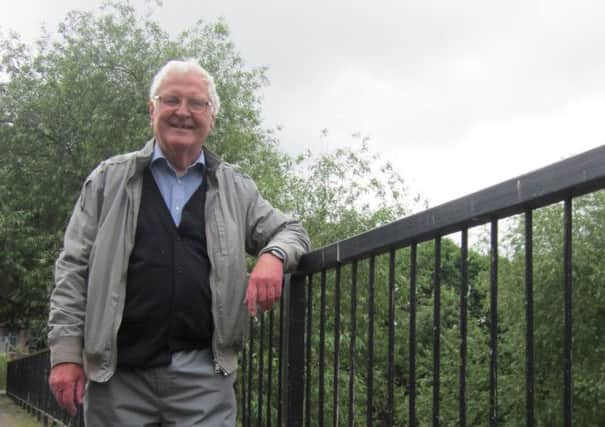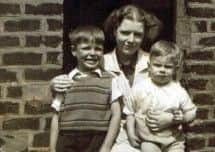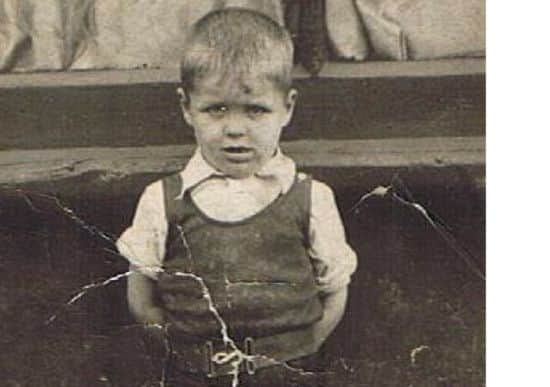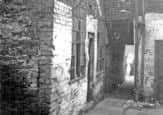RETRO: Attercliffe born former MP Joe Ashton recalls life in the Depression


The hungry Thirties, the most deprived decade of the 20th century.
Poor kids went barefoot, thousands of men were idle, factories closed and work dried up, putting the world’s economy on the brink of collapse as the Depression took its terrible grip.
Advertisement
Hide AdAdvertisement
Hide AdFamilies made-do with next to nothing in many areas of the Sheffield, eking out their impossibly meagre incomes with a few dodges and a lot of hard times.


Joe Ashton, Labour MP for Bassetlaw for 33 years, was born and raised in Attercliffe, one of Sheffield’s most deprived and colourful areas during the Depression.
In a five-part Retro Special serialisation of his new book ‘Joe Blow’ beginning tonight Joe Ashton tells a tale from those times in the east end of Sheffield up to his early days as an MP from 1968.
“As a grand old man of 81 I find, like many old people, that I can remember things that happened when I was a kid 75 years ago better than I can remember what happened yesterday,” said former Sunday People columnist Joe.
Advertisement
Hide AdAdvertisement
Hide Ad“I get more laughs and amusement remembering those old times and the way we were and how we lived during those very hard times of the Blitz, and the days of mass unemployment before the war, and the way kids were brought up and often abused, and the schools and what life was like from 1930 in the depression until things started picking up during the time of The Beatles.


“Not many people can remember that now –the good times, the bad times, the fun and the tears we went through.
“I am asking people to do their grannies a favour and buy her this book for Christmas. All the cash will go to the Salvation Army which will help to pay for hard-up poor and old people and give them a bit of joy in life.”
I might as well start at the beginning…
Little Joe and the runaway lorry


On September 6 1913, my Uncle Joe was crushed and killed by a runaway lorry.
Advertisement
Hide AdAdvertisement
Hide AdIt was pulling two and a half tonnes of molten hot tar on a trailer, down Sutherland Street and on to Atterclife Road.
Little Joe Maloney was only four years old.
Little Joe didn’t run into the road.
He stayed on the pavement like his mother always told him to.
The Sheffield Daily Independent spoke to an eyewitness, John Walter Simpson, who said: “The traction engine was coming at a terrible pace.
“I rushed across the road with the others. I turned my head and just before the engine struck the kerb, I saw the boy.
“Good God, its run into the children!” I exclaimed.
Advertisement
Hide AdAdvertisement
Hide AdThe lorry lost both front wheels as it impacted into the wall, and Little Joe was crushed as he stood on the pavement.
He was taken, horribly injured but still conscious, to the offices of Cammells Works at Bessemer House on Carlisle Street. A horse-drawn ambulance took him to the Royal Hospital.
Upon admission he was pronounced “extinct”. This was long before the days of anaesthetics or painkillers.
The headlines in the Sheffield Daily Independent (soon to be called the Sheffield Telegraph) boomed: “RUNAWAY LORRY TRAGEDY. Amazing street scene. Boy killed. At 25 mph. Graphic stories at the inquest. Crashed into the wall. Many people in danger.
Advertisement
Hide AdAdvertisement
Hide AdThe newspaper reported “thrilling stories of the lorry’s wild dash”.
But Maloney’s condition was hopeless. He was horribly injured.
At the inquest, the driver said: “The brakes refused to act and the child Maloney ended up under the wheels.”
The driver was asked: why didn’t the brakes hold the engine? He replied: “I’m sure I couldn’t say.”
Advertisement
Hide AdAdvertisement
Hide AdThe coroner said he was sure everybody was sorry for the little boy who had met his death and returned an accidental death verdict.
Health and safety was unheard of.
In 1913 there was no such thing as driving tests or licenses or car insurance.
The court never even awarded the family’s funeral costs for Little Joe.
The young couple had no money and the only option was a pauper’s grave.
Advertisement
Hide AdAdvertisement
Hide AdBut there were no rules either that they couldn’t try for another Little Joe.
That’s why I got called Joe.
Little Joe Maloney was my grandmother’s first child. She eventually had eight more.
Her first three sons, Joe, James and John all died as infants.
Like many women in those days, my grandmother wisely took notice of Irish folklore, which was to ignore the priest and definitely not get married until she was well past her 28th birthday.
Advertisement
Hide AdAdvertisement
Hide AdThat way, Irish women could be hopeful they would only have to deliver eight or nine kids.
Not fourteen or even fifteen if they had married earlier.
It was always likely that some kids from a very large brood would be handicapped with a condition like Down’s Syndrome.
In those days such children were not expected to survive long and were seen as a burden on society.
“Not many people can remember that now –the good times, the bad times, the fun and the tears we went through”
I was born in Mrs Johnson’s front room
Don’t let the bed bugs bite.
Advertisement
Hide AdAdvertisement
Hide AdThere is a popular programme on the BBC called Who Do You Think You Are?
Famous people are delighted to take part and are sometimes stunned at the revelations about what their ancestors got up to.
The family secrets, kept hidden from the children, and revelations of where the money went, or whether a child turned up on the wrong side of the blanket are always a shock.
Personally, I think the BBC should now start a series called “Where were you conceived?” Where was that magic moment where the earth moved?
Advertisement
Hide AdAdvertisement
Hide AdThe BBC would not have many problems in finding out why the stork delivers more kids in October or March than in any other months.
It’s simple: in January hard-up young people had no spare cash at all. The young couples are skint after Christmas and can only keep warm by snuggling up to each other.
Surprise, surprise, it often brings bundles of joy the following October.
That’s when they bring in another mouth to feed.
I reckon I was conceived on a freezing Friday or Saturday night, opposite the Foundry Working Men’s Club on Birch Road, Attercliffe.
Where there was not a tree for two miles.
Advertisement
Hide AdAdvertisement
Hide AdNine months later, in October 1933, I was delivered in Mrs Johnson’s front room.
It was next to the Moulders Working Men’s Club, with its beer barrels, a piano, a set of drums and a saxophone.
It was next door to my Grandma Maloney’s house, with two bedrooms and one sink for eight kids, with no hot water or electricity. Although it did have one gas mantle, which was better than candles.
In 1933, not a single family living on Birch Road had any money. Teenagers had no chance whatsoever of getting a job when they left school at fourteen.
Advertisement
Hide AdAdvertisement
Hide AdOn the light nights of that summer the unemployed local lads would often get together on the street corner and sing songs in harmony until 2am or 3am. No-one had a radio, but someone might have a mouth organ.
No-one ever complained, because the songs helped to get the little kids to sleep.
“Night-night, don’t let the bugs bite!” was a popular saying. We would seriously have to crunch the itching bugs in the warm summers.
At the time of my conception, my dad was just 18 and my mother was 19. The unemployed were singing “Buddy Can You Spare a Dime?”
Advertisement
Hide AdAdvertisement
Hide AdMany in Attercliffe were praying for another war, just 15 years after the last one, because it was the only way everybody in Attercliffe and Sheffield was ever going to get a regular job.
A monstrous suggestion? Not at all.
Sheffield made steel. The finest quality of tough, hardened metal for cannons, shells or torpedoes which could demolish any enemy anywhere.
* Read more of Joe’s memories in The Star tomorrow
It’s a cracking read and it’s in The Star every day this week from today and available to order from The Star shop on York Street.
Don’t miss out...